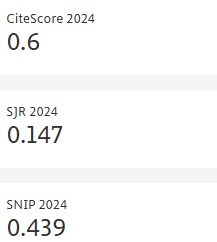COSTUME COLOR AS A MEDIUM OF COMMUNICATING THE CHARACTER CHANGES OF WARRIOR ANGGINI IN THE FILM WIRO SABLENG (2018)
- Published: 02-04-2025
Share
Film costumes are not just aesthetics but also convey subtext, enrich characterization and shape the audience's perception. Color as part of a costume can reflect emotions, social status or character changes. However, color often has more meaning when examined in depth. In action films, costumes appear iconic, both in Western action films and Indonesian martial arts films, one of which is the Wiro Sableng martial arts film, which was re-produced in 2018. Like Western superhero films, the hero in this story has an iconic appearance. However, in the Wiro Sableng film made in 2018, namely, warrior Anggini, the producer and scriptwriter have changed the color of her costume, unlike Wiro (the main character), who still uses white like the previous version of the Wiro Sableng film. This phenomenon raises the question of why the character Anggini uses a different costume color from the previous version (1995) and whether the change in costume color relates to the change in her characterization. Several previous studies have revealed that the meaning of costume color is closely related to the character. However, the psychological meaning of costume colors has yet to be studied with an archetype or character personality approach, where both approaches can be used to get to know a character in a film more clearly. Therefore, this study aims to reveal the relationship between the meaning of costume color changes and changes in the character of Anggini in the story with an archetype approach, personality matrix and psychological color mapping. The method used is a visual-comparative analysis method focused on the costume colors of the character Anggini in the Wiro Sableng films in 1995 and 2018. The findings of this study reveal the relationship between archetypes, personality matrix and psychological meaning of color with changes in character. The color changes in the warrior Anggini character in the 2018 Wiro Sableng film are influenced by the feminist perspective of the producer, who also became a scriptwriter. Redefining Anggini in Wiro Sableng Film (2018) as a woman warrior represents gender performativity by challenging stereotypes of women in the form of binary oppositions that are often subordinated and objectified in film.
- View 1297
- Downloads 179
- Saveds 1
- Citations (Crossref) 0


